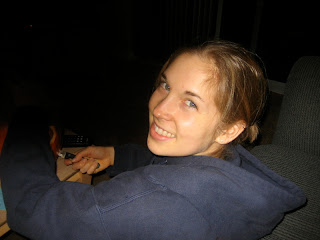Letter to Barbara Kingsolver
Dear Barbara Kingsolver,
I spent yesterday holed up in my tiny studio, kneading bread while listening to Animal, Vegetable, Miracle on audiobook. I would have been completely alone, were it not for your voice recounting the wonders of asparagus and my active little baking companions, the yeast. They soon got to work filling the apartment with the most divine smell, and I recalled a silly line by Kurt Vonnegut:
“Kilgore Trout once wrote a short story which was a dialogue between two pieces of yeast. They were discussing the possible purposes of life as they ate sugar and suffocated in their own excrement. Because of their limited intelligence, they never came close to guessing that they were making champagne."
My boyfriend, Andy, is an incurable Vonnegut fan and an unrepentant bookworm in general (as am I), so I prodded him to write to this quirky man whose words he couldn’t get enough of. He did, and beautifully, while I looked up the address and bought some stamps. A few months later, Vonnegut died. Of course we wonder about the letter, but what I like to think about is how Andy was changed by the books, and how he wrote the letter with such integrity and wit. (It makes me love him more). Every time I rave about your books now, I get a little reminder from him that it’s my turn to write a letter.
And so the yeast and the bread and the book and the quote just came together and told me what I have to tell you, that I am so thankful for your writing. In college, your novels were the reading indulgence that kept me loving books even after studying well past the point of burnout. But it is Animal, Vegetable, Miracle that’s speaking to me now – right out of my iPod and into my soul.
I’ve sensed for a while that something’s amiss with our food, something that’s screwed us all royally, myself included. What you’ve pinpointed as a loss or lack of a solid food culture has left us ignorant and anxious about eating, a natural, wonderful part of being alive. So many of us eat as though doing so is a necessary evil (and with the prevalence of low-quality food, evil it may be). We’ve been duped by fraudulent food and perverse eating patterns to such an extent that it seems weird, weird, to go through that most lovely process of cooking, eating, and enjoying a meal.
I miss meals. I think I lost track of them at some point in college where the choices included the all-you-can-eat binge buffet or the air-and-artificial-sweetener ice cream imposter known as “Tasti D Lite” (the mainstay of skinny sorority girls). As a child I had planted my own cherry tomatoes, entered homemade pies in the County Fair, and experimented with ethnic cuisine from books I checked out of the library. Somehow, though, these pursuits became embarrassingly bumpkinish and breakfast soon deteriorated from Dad’s whole grain pancakes to a large coffee with Splenda, even while I was majoring in nutrition! My peers and I were too busy, too hip, too impatient for authentic cooking and dining. To even admit that you liked food was almost seen as a weakness, as though we should still feel guilt over Eve and that apple. Even now, two years out of college, disordered eating and a pervasive disquiet about food are what I face daily, especially in my career as a performing artist, where healthy diets are rare.
Animal, Vegetable, Miracle is helping me see the beauty in food again. That I can honestly love cooking and eating while still being intellectual, sophisticated, and even feminine is a delightful idea to wrap my mind around, an attitude that will take practice to internalize, but is a worthy aim. Having read books by Michael Pollan and Marion Nestle recently and learned a great deal from them, I feel the need to do my part in straightening out our communities’ crooked food systems. It is your story, though, that has helped me make the connection between my own personal food philosophy and the larger issues of sustainable agriculture and public health nutrition in our country. Thank you.
Best wishes and be well,
Meghan E. Miller
